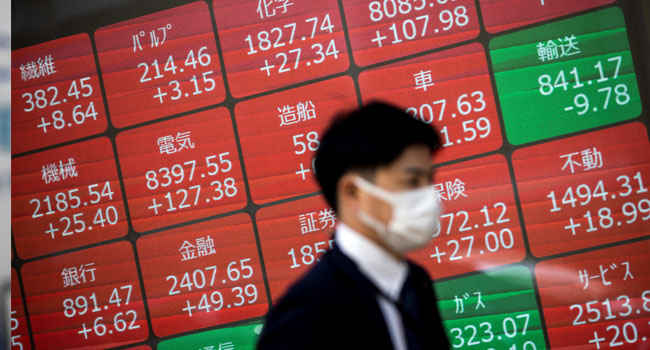
- Forex
- Indices
Asian stocks subdued, yen weakens
Do you want to know how to make money from this?
Register for free and get expert advice, access to a training course and webinars.
Key points:
- The MSCI index rose slightly by 0.17%, the Japanese Nikkei index – by 0.78%.
- The Japanese yen weakened 0.11% to 151.77 per US dollar.
- There is the possibility of a “flexible response” by the Japanese authorities to excessive fluctuations in the yen.
Asian stock markets were muted early Monday, with the US dollar remaining stable. Investors are assessing the possible timing of the US Federal Reserve’s rate cut following the publication of the latest jobs report showing growth.
A former senior Japanese currency official said on Monday that Japanese authorities could intervene in the foreign exchange market to stop the yen’s sharp fall “at any time” if its fluctuations are significant enough to justify such measures.
Asian shares under pressure from US data
The MSCI index (.MIAPJ0000PUS), which tracks Asia-Pacific stocks excluding Japan, rose 0.17%, while Japan’s Nikkei index (.N225) added 0.78%. Asian stocks are under pressure from US economic data.
Data released Friday showed U.S. job growth in March exceeded analysts’ forecasts and wage growth held steady, suggesting the economy will perform robustly in the first quarter.
Investors expect a 62 basis point rate cut this year, slightly below the Fed’s forecast of 75 basis points.
This week, investors’ attention will be focused on the US Consumer Price Index (CPI) report. Core inflation is expected to slow to 3.7% in March from 3.8% in February.
The yen exchange rate may be regulated by the Japanese authorities
The Japanese yen fell 0.11% to 151.77 per US dollar. Investors’ concerns about possible intervention from the Japanese authorities remain.
Nicholas Chia, Asia macro strategist at Standard Chartered, said the yen would be particularly sensitive to the release of strong US consumer price index data. In this case, he said, “talk about intervention is likely to return to the agenda.”
Takehiko Nakao, who served as Treasury vice minister for international affairs from 2011 to 2013, made the announcement as the yen neared a 34-year low against the dollar hit last month.
The last time Japan intervened in the foreign exchange market was in October 2022, when the yen fell to 151-152 yen per dollar. Japanese authorities are warning “speculators” against trying to sell off the yen and say they do not rule out a “flexible response” to excessive currency fluctuations.
Do you want to know
How to make money from the news
Register for free and get:
- Expert consultation;
- Access to the training course;
- Opportunity to participate in webinars

